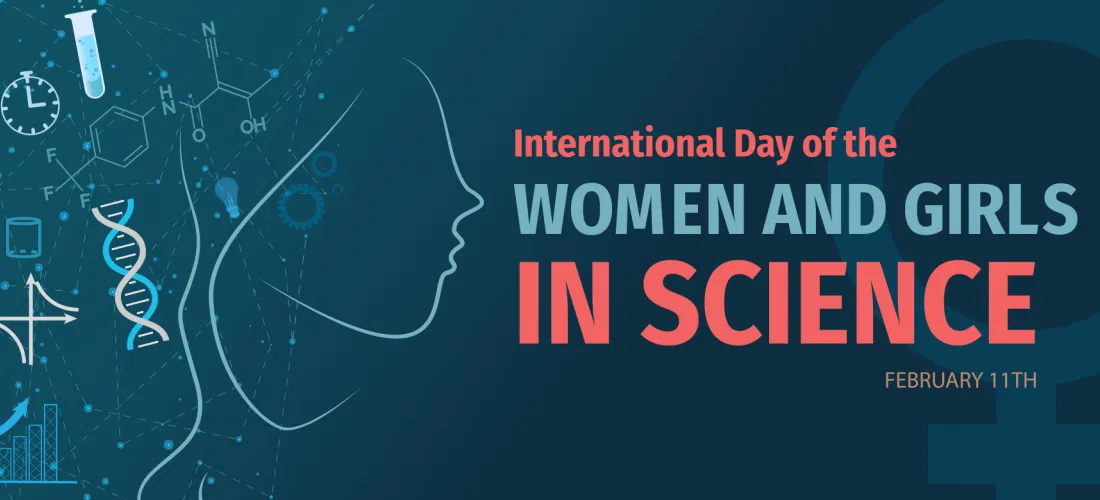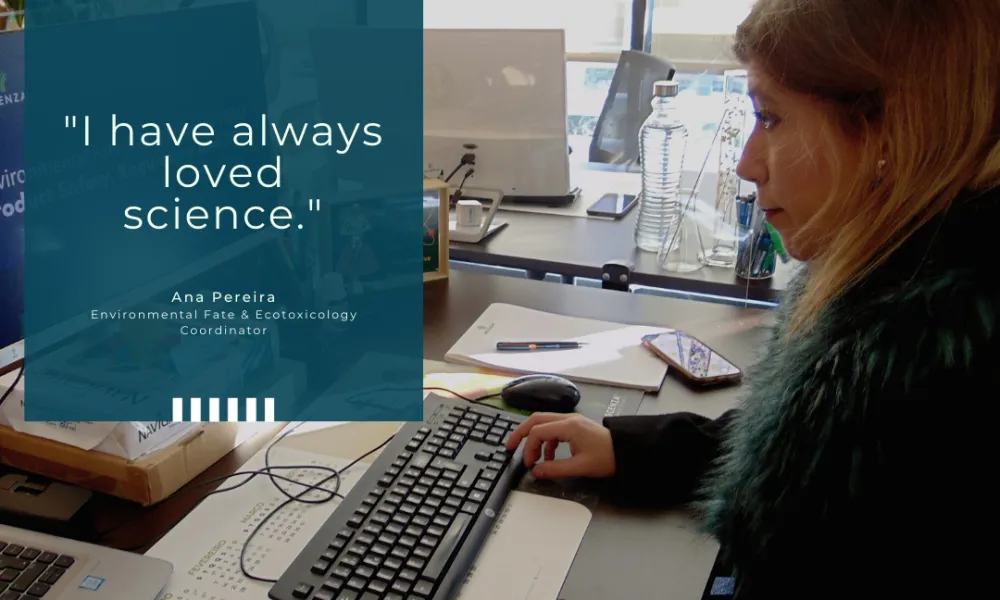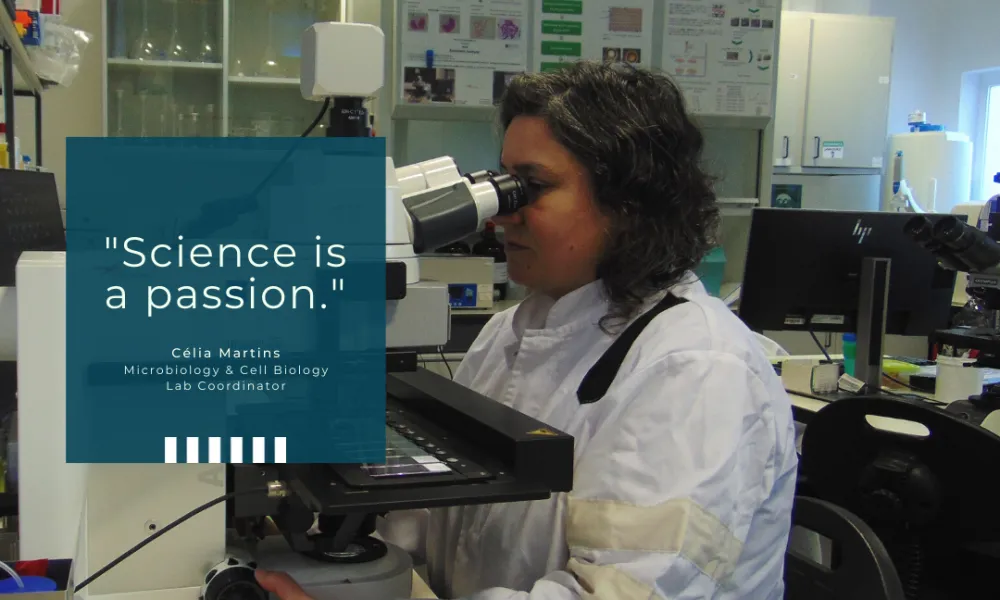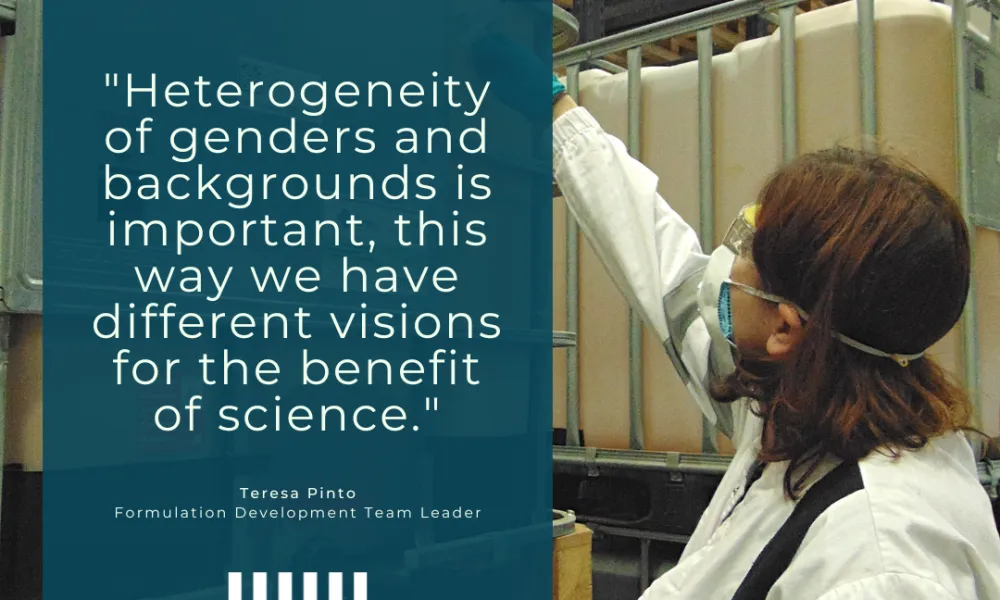ASCENZA celebrates International Day of Women and Girls in Science
11 February is celebrated as the International Day of Women and Girls in Science.
Today, less than 30% of researchers around the world are female, according to the UN.
As indicated by the European statistics agency, in science areas in Europe, there are around 6.3 million scientists and engineers, which represents 41% of jobs in the sector. Women's participation depends on the areas, being lower in industry, with only 21% of female researchers and engineers. In services, this percentage rises to 46%.
On this special day we share with you the personal stories of Ana Pereira, Célia Martins and Teresa Pinto, who assume a daily leadership role in our company. But Ana, Celia and Teresa are only three of the 275 workers at ASCENZA.
When we listen to their stories, we realize that the passion for science has always been there, and that when they were still noticeably young their academic choices were simple.
Ana Pereira, PhD in Environmental Engineering, admits that she always liked " to touch the soil", and that the choice for this area came naturally. With the years going by, and throughout her academic life, she became involved in a research group, and dedicated herself, for example, to the topic of pesticides in water. Three years ago, when joining ASCENZA, Ana started as a member of the ecotoxicology team, where her day-to-day activities included monitoring studies and working on approval dossiers. Later she took over the coordination of the ecotoxicology and environmental fate area, never leaving her love for science behind.
Ana Pereira says, "I never felt that I was losing something because I was a woman". However, she is not insensitive to the reality that so many women face in their work, and she shares with us that, unfortunately, the stereotype that a man is a better leader is still strong in our society.
Célia Martins, PhD in Life Science, shares the same opinion as her colleague, even though this is not the reality of the department where she works. And she reveals that in some moments she has felt the strangeness of members of other organization's when she takes on the role of a woman and a professional in the scientific area - "there were people who had some resistance in hiring women, and when they were obliged to do so, they didn't treat them in the same way". Célia describes science as "a passion" and like any love it should be experienced equally - "the main objective is that there is no differentiation between men and women. Each one has their own strengths. Even though there are intrinsic characteristics, they complement each other".
Talking with Teresa Pinto, PhD in Chemical Engineering, our colleague assures us that "heterogeneity of genders and backgrounds is important, this way we have different visions for the benefit of science". This engineer, originally from Alentejo, Portugal, completed her studies in France, where she lived and worked, until she joined the team of the ASCENZA Industrial Support Synthesis Laboratory in 2015. It was at this time that family life became more important, and Teresa decided it was time to come back to the country where she was born. Currently, she leads the Formulation Development team where, in addition to managing projects, new developments and monitoring industrial batches, she is also the bridge between the most different teams in the company.
At ASCENZA it is natural to count on women like Ana, Célia and Teresa. These three women represent many others who are not highlighted here, but who contribute daily to the growth of the company. To all of them, THANK YOU VERY MUCH.






